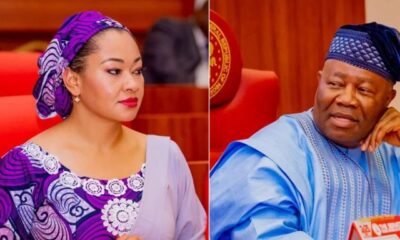The Federal Government spent N375.8bn on electricity subsidy between January and September this year, as power consumers paid a total of N782.6bn for the commodity during the same period, it was gathered on Sunday.
According to the most recent data on power subsidies, which were received in Abuja from the Federal Government’s Nigerian Electricity Regulatory Commission, the government provided electricity subsidies in 2023 for the first, second, and third quarters.
Additionally, it was learned that despite widespread blackouts in Nigeria, power distribution companies collected N782.6 billion during the nine-month period, while billing energy users a total of N1.06 trillion nationally.
On subsidy payments, it was observed that in the first quarter of this year, the Federal Government subsidised power by N36bn, this increased to N135.2bn in the second quarter, and jumped to N204.6bn in the third quarter. Figures for the fourth quarter are not because we are still in the fourth quarter of 2023.
Providing reasons for the subsidy in its just-released third-quarter 2023 report, the NERC stated that it was due to the absence of cost-reflective tariffs.
It said, “In the absence of cost-reflective tariffs, the government undertakes to cover the resultant gap (between the cost-reflective and allowed tariff) in the form of tariff shortfall funding. This funding is applied to the NBET (Nigerian Bulk Electricity Trading Company) invoices that are to be paid by Discos.
“The amount to be covered by the Disco is based on the tariff that they are allowed to charge and set out as their Minimum Remittance Obligation in the periodic Tariff Orders issued by the Commission.
“It is important to note that due to the absence of cost-reflective tariffs across all Discos, the government incurred a subsidy obligation of N204.59bn in 2023/Q3 (average of N68.20bn per month), which is an increase of N69.37bn (+51.3 percent) compared to the N135.23bn (average of N45.08bn per month) incurred in 2023/Q2; this increase is largely attributable to the government’s policy to harmonise exchange rates.
“The rise in the government’s subsidy obligation meant that in 2023/Q3, Discos were only expected to cover 45 percent of the total invoice received from NBET. For ease of administration of the subsidy, the MRO is limited to NBET only with the MO (Market Operator) being allowed to recover 100 percent of its revenue requirement from the Discos.”
On the payment of electricity bills, it was observed from the three quarterly reports of the power regulator, that consumers paid N247.09bn, N267.86bn and N267.61bn in the first, second and third quarters of 2023 respectively. This represents a total of N782.56bn.
It was also observed that during the three quarters: first, second and third, the electricity bills from Discos to consumers were N349.55bn, 354.61bn and N359.38bn respectively. The total bill for the nine-month period was N1.06tn.
In its latest third quarter 2023 report, the NERC stated that “the total revenue collected by all Discos in 2023/Q3 was ₦267.61bn out of ₦349.55bn billed to customers.
“This translates to a collection efficiency of 76.56 percent, which represents an increase of +1.02 basic points when compared to 2023/Q2 (75.54 percent). The increase in collection efficiency can be attributed to the implementation of various collection campaigns for improved remittance by post-paid customers.”
On market remittance, it stated that “in 2023/Q3, the cumulative upstream invoice payable by Discos was ₦208.7bn, consisting of ₦167.4bn for generation costs from NBET and ₦41.3bn for transmission and administrative services by the Market Operator.
“Out of this amount, the Discos collectively remitted a total sum of ₦158.43bn (₦124.53bn for NBET and ₦33.9bn for MO) with an outstanding balance of ₦50.27bn.
“This translates to a remittance performance of 75.91 percent in 2023/Q3, which is down by 19.30 basic points compared to the 95.21 percent recorded in 2023/Q2.”
For remittance by special and cross-border customers in 2023/Q3, the commission stated that none of the four international customers being supplied by Nigeria’s power generation companies in the sector made any payment against the cumulative invoice of $11.16m issued to them by the MO for services rendered in 2023/Q3.
“Similarly, none of the 16 bilateral customers operating in the NESI (Nigeria Electricity Supply Industry) made any payment against the cumulative invoice of N2,814.68m issued to them by the MO for services rendered in 2023/Q3,” the NERC stated.
According to The Punch, the President of the Electricity Consumers Association of Nigeria, Chijioke James said there was no clear indication as to whether the government was paying subsidy on electricity as claimed.
He also faulted the comparisons made by the government which tends to suggest the fact that Nigerians were paying less for electricity than many of its counterparts.
He said, “The subsidy that they say the government is paying is not clear. There is no clarity on how the government pays this subsidy. If we had a transparent process, everybody would see the volume of commitment that the government is making and would be able to appreciate it.
“We are more concerned about the transparent process of what constitutes the subsidy and the tariff regime. If we had a transparent process, we would do a cost-benefit analysis, all the stakeholders would know how to make sure that everybody is carried along in a fair and equitable.”

 BIG STORY3 days ago
BIG STORY3 days ago
 BIG STORY5 days ago
BIG STORY5 days ago
 BIG STORY3 days ago
BIG STORY3 days ago
 BIG STORY4 days ago
BIG STORY4 days ago
 BIG STORY5 days ago
BIG STORY5 days ago
 BIG STORY3 days ago
BIG STORY3 days ago
 BIG STORY5 days ago
BIG STORY5 days ago
 BIG STORY5 days ago
BIG STORY5 days ago
































